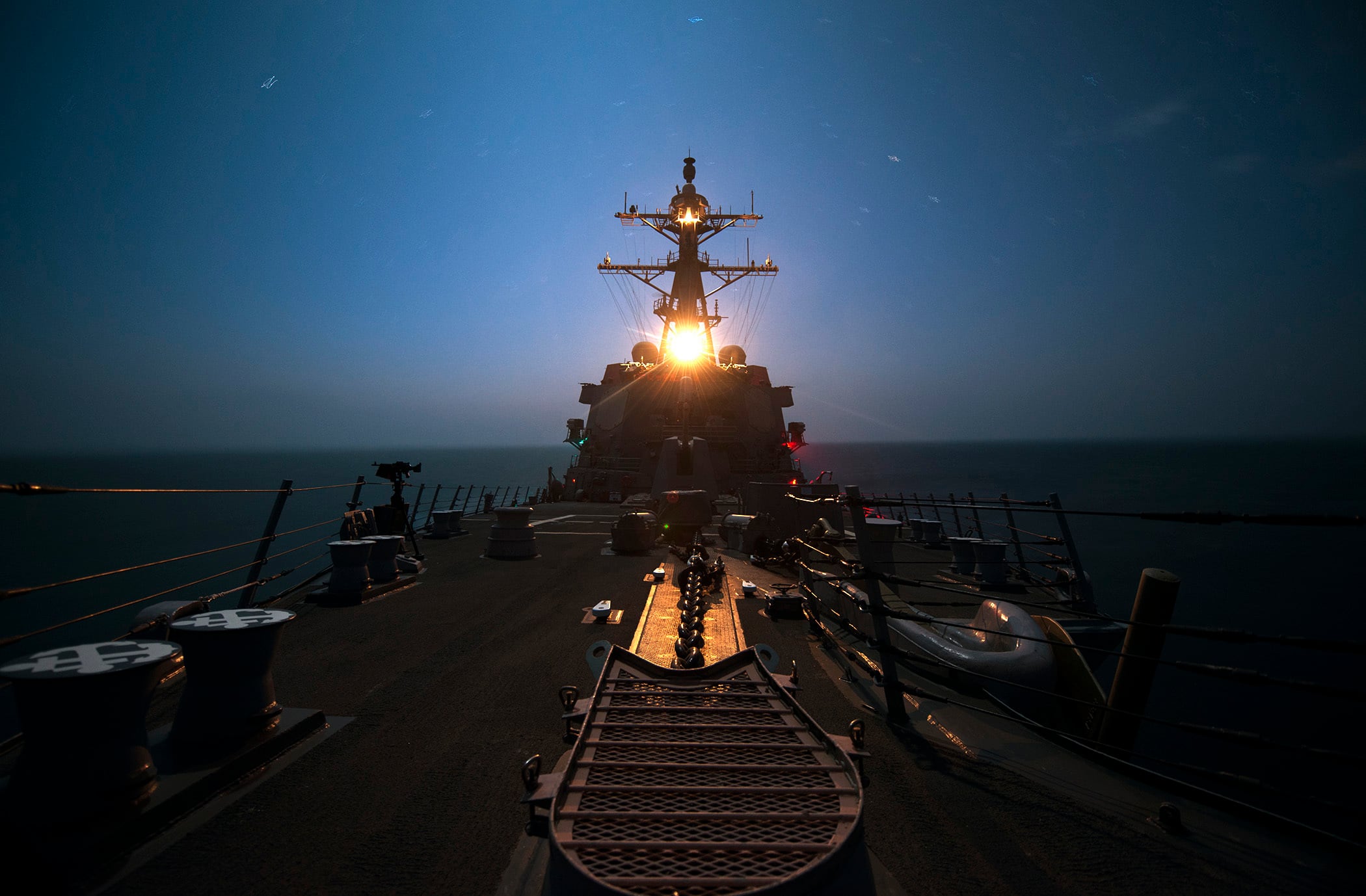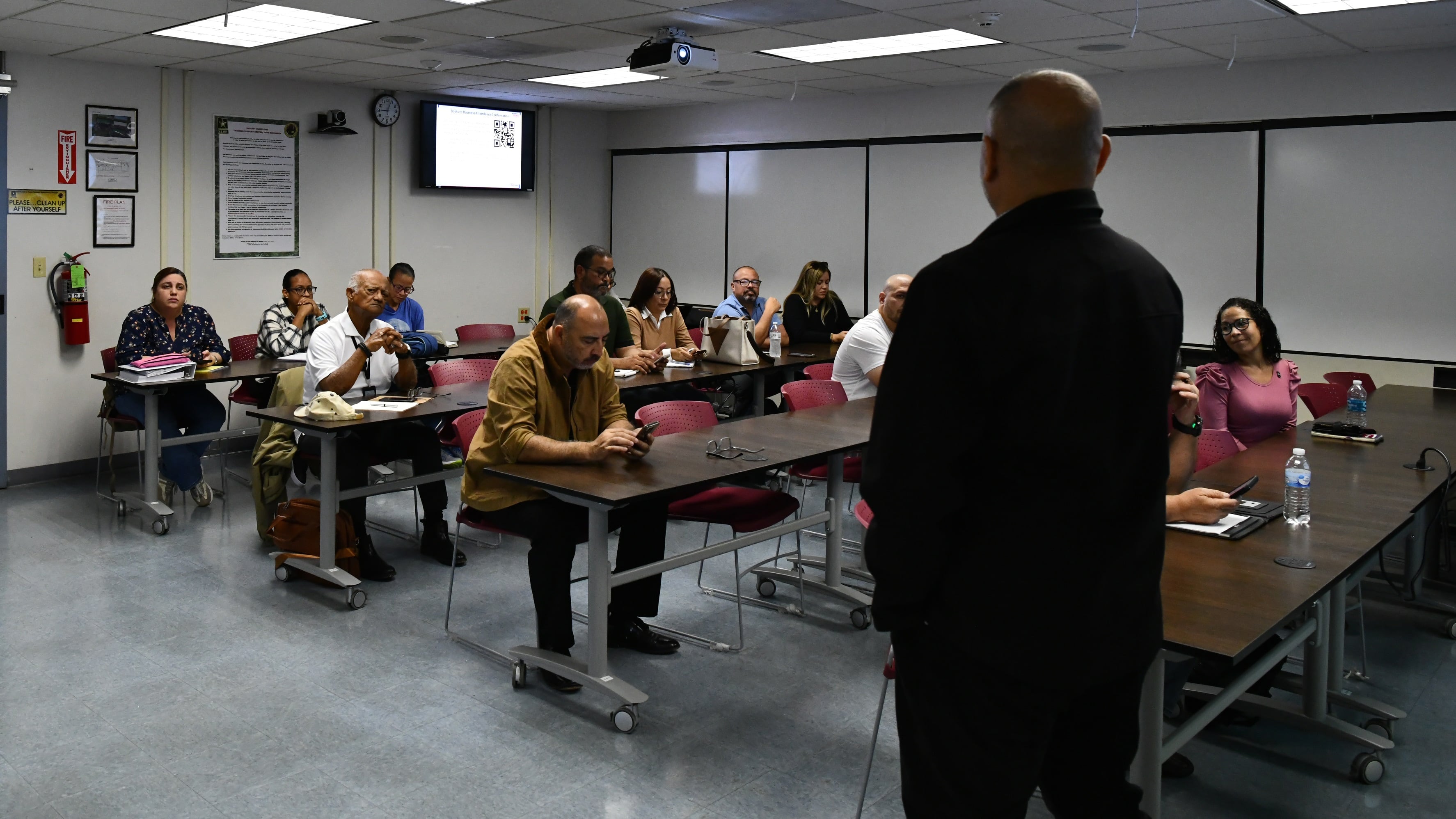By the time the junior officer emailed her peers in March 2022, reminding them to do their jobs and protect their sailors from each other, the men and women of the Navy destroyer Bulkeley had suffered through a rough couple of years.
The warship had entered a maintenance and modernization stint in March 2019 that was expected to last 15 months. But Bulkeley didn’t leave the Virginia shipyard until June 2021, more than two years later.
Once out, the undermanned crew, missing sailors in key positions, worked at a feverish pace to get the warship in shape ahead of a planned homeport shift from Norfolk, Virginia to Rota, Spain.
Along the way, standards had laxed, festered and metastasized in some sections of the 22-year-old ship, crew members would later say.
Women in some divisions reported enduring so many instances of sexual harassment that they had become numb to it.
Earlier that year, reports of sexual assault and harassment reached such levels that the ship stopped dimming its passageway lights at night due to “an upward trend in cases of sexual assault,” the ship’s second-in-command recalled.
“Even in forward ‘O Country,’ keep white lights on,” another Bulkeley sailor warned.
Against this backdrop, the junior officer emailed her peers, imploring them to “change the culture” and walk their work spaces to keep sailors safe, even after the ship’s leadership had spoken about such issues and rolled out additional training.
“Most of them don’t want to report because they’re scared we won’t believe them, we won’t take action,” she wrote.
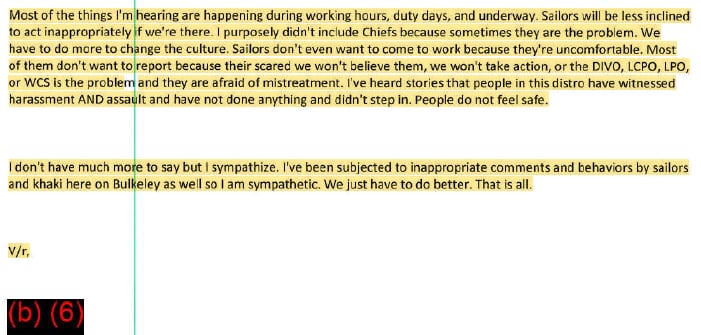
The officer castigated her peers who witnessed harassment or assault and “have not done anything and didn’t step in,” and she noted how she had been “subjected to inappropriate comments and behaviors” on the ship as well.
Another Bulkeley officer later characterized the ship’s absent leadership more bluntly: “A junior sailor isn’t going to call a maintenance technician a slut if you are sitting right there.”
That email, and previously unreported details on the dire state that Bulkeley found itself in by the spring of 2022, are contained in hundreds of pages of internal investigations obtained by Navy Times via a Freedom of Information Act records request.
Navy Times obtained these records from Naval Surface Force Atlantic, or SURFLANT, via a request that sought any and all documents relating to the June 2022 firing of the ship’s commanding officer, Cmdr. Devine Johnson, and Command Master Chief Earl Sanders.
Those records chronicle multiple investigations into the Bulkeley in the months leading up to the reliefs, which the Navy said at the time were due to a “loss of confidence” in Johnson and Sanders.
RELATED
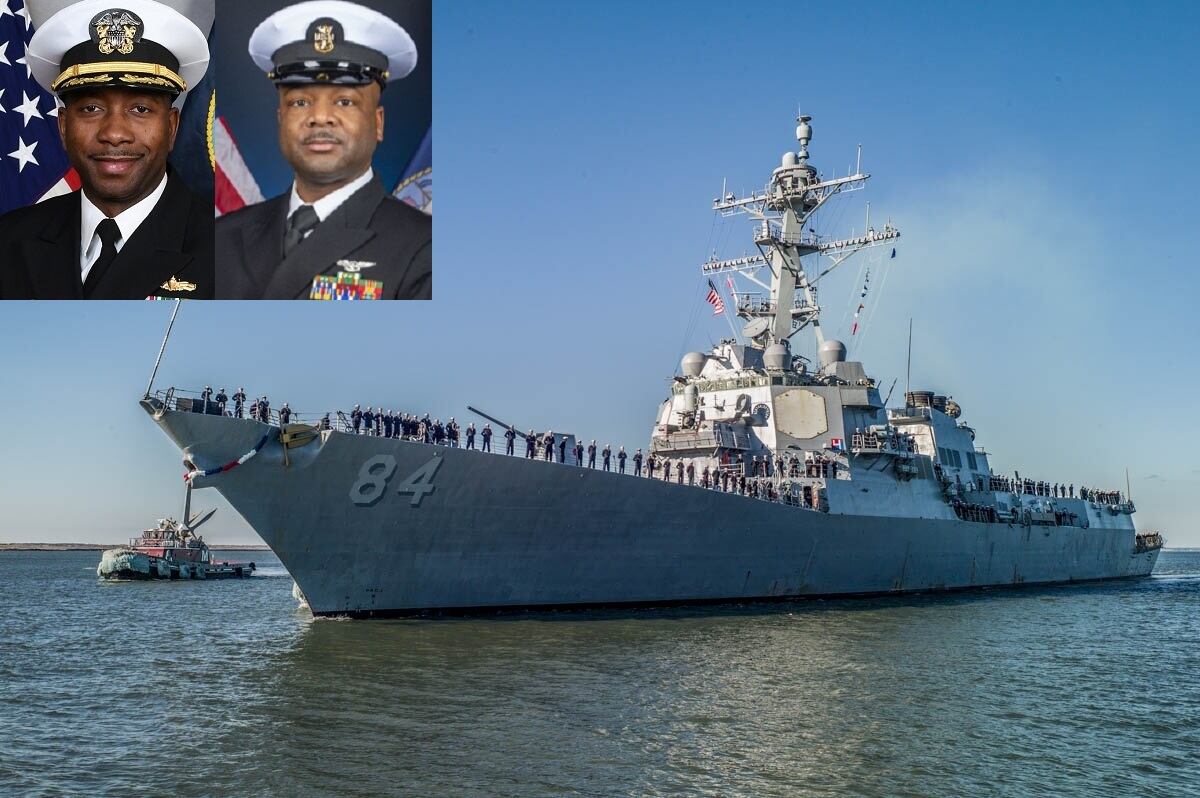
But the warship’s troubles outlined in those investigations reveal a story that encompasses far more than a canned commanding officer and command master chief.
The documents suggest a grim constellation of systemic factors at play as the ship raced to meet Big Navy’s needs for operational warships; themes of fatigue, undermanning and unforgiving schedules that have plagued the surface fleet since at least 2017, when such realities were found to have played a role in the Fitzgerald and John S. McCain collisions that killed 17 sailors.
Johnson declined comment for this report, while Navy service records show Sanders retired last summer, and he did not respond to emails and phone calls seeking comment.
One Bulkeley officer described the command climate as “disheartening”, and noted how the crew had been without key personnel for years.
“We’ve experienced significant and frequent setbacks to the schedule, materially been undermanned,” the officer told investigators.
The planned and delayed home port shift to Spain also wreaked havoc on the crew and their families, the officer added.
Some feared the ship would not even make it to the European waters of the U.S. 6th Fleet command, given the material problems and the fractures within the crew.
“This ship, and this crew, was going to go to 6th Fleet, and were going to die,” one sailor said.
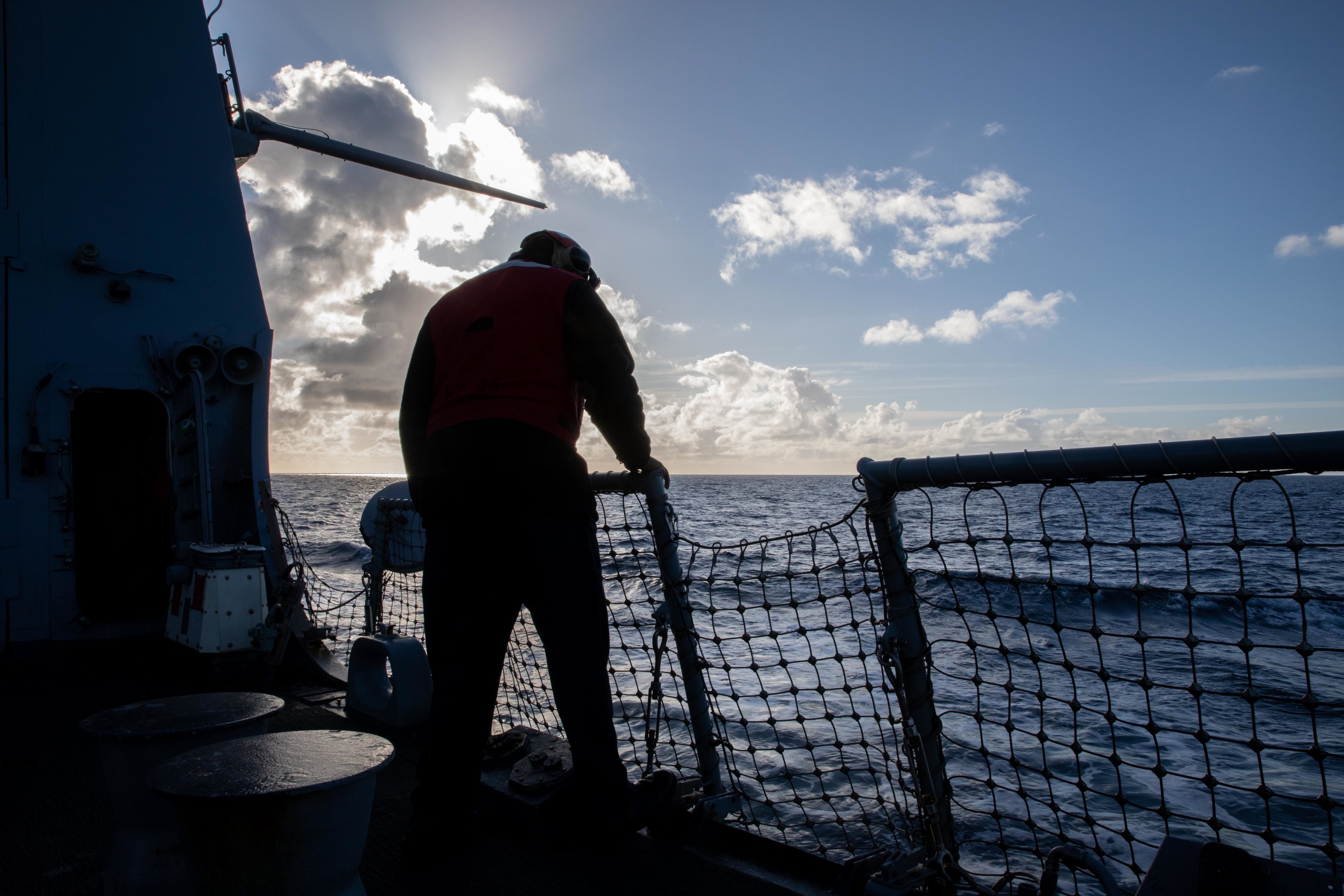
‘Just shitty times’ aboard the Bulkeley
The investigations also suggest that Bulkeley’s immediate superior command, Destroyer Squadron 2, was aware of such issues at least a year before the squadron launched the investigations.
The Destroyer Squadron 2 investigators’ opinions and recommendations regarding the Bulkeley are redacted in the copies provided to Navy Times, as are the names of alleged sexual harassers and their victims, making it impossible to ascertain the ranks of those involved or the assessment of the officer who investigated the ship’s issues.
SURFLANT, the command that oversees all East Coast surface ships, declined to answer questions about who perpetrated the alleged sex crimes within certain divisions mentioned in the investigations, including the ranks of those involved.
“There are ongoing administrative proceedings related to the [Bulkeley] investigations,” SURFLANT spokesman Lt. Cmdr. David Carter said in an email. “To protect the integrity of those processes and avoid an invasion of personal privacy, it would be inappropriate to comment further at this time.”
There have been no court-martial proceedings connected to the Bulkeley’s investigations, he added.
Carter also declined to say how many incidents of sexual harassment and sexual assault were reported from within the Bulkeley in 2021 and 2022, as “the Navy does not release individual command data.”
The investigations raise further questions about oversight of the ship’s problems by Destroyer Squadron 2.
At least a year before higher-ups began their probes in 2022, Bulkeley sailors shared such concerns in a 2021 command climate survey that the destroyer squadron investigations later cited.
Command climate surveys are a regular requirement of commands at all levels. They seek to get a sense of how a crew is doing, and commanders are supposed to brief survey findings to their bosses.
“Being on the Bulkeley has ruined my idea of what the military is,” one sailor wrote in a 2021 survey, cited in the investigations obtained by Navy Times. “I hate the working conditions, and I hate the hours. I don’t have faith in my command or shipmates and I cannot wait to leave this ship.”
“Morale is extremely low onboard,” another sailor wrote in the survey. “I think it’s fair to say a majority of the crew feels like there is no light at the end of the tunnel. We have no hope in the situation getting better.”
One survey entry noted a member who regularly told jokes using racial epithets, and who once told a sailor, “you are black as shit, the only way I would see you is if you smiled.”
Another sailor reported a shipmate who made racist jokes and sexual advances on female junior sailors.
“When the whole crew knows someone is a creep, that’s bad,” a sailor wrote in the survey.
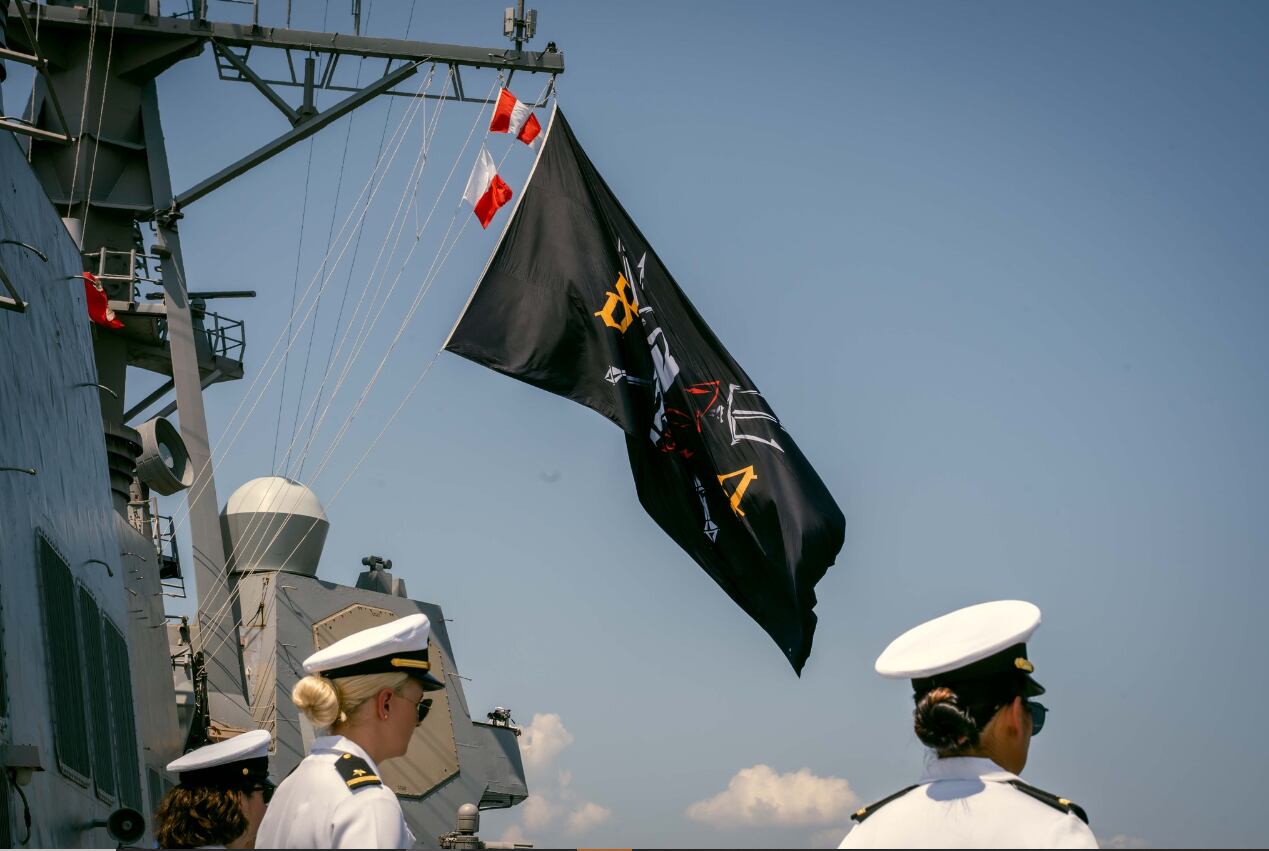
Despite these sailors using one of the only tools available to the lower ranks for raising the alarm about problems at the command, Bulkeley’s crew would have to wait another 13 months before any higher-ups began looking into the ship and its problems.
Carter, the Navy spokesman, said that Bulkeley’s leadership submitted an “Executive Summary and Plan of Action and Milestones” to its superior command following the 2021 survey.
But he did not answer Navy Times’ questions regarding whether anyone above the warship intervened to respond to sailors’ concerns following that survey.
“While I can’t provide specific information related to the Bulkeley’s Command Climate Assessment, the command did conduct a number of focus groups, which allow for more in-depth conversations to assist with identifying the root causes for areas of concerns, or where greater clarity of opinions or perceptions are needed,” Carter said.
“Harassment of any sort is not tolerated in the Navy.”
Asked whether the Navy had any indication of whether morale aboard the Bulkeley has since improved, Carter suggested that Navy Times submit another Freedom of Information Act records request for such information.
Bulkeley eventually made its way to Spain in August 2022, and the ship received the Battle “E” Effectiveness Award last year, reflecting the ship’s “integrity and accountability,” Carter said.
While that award suggests that the ship and crew have recovered, one sailor noted how everyone aboard Bulkeley seemed “weird” in 2022, a few months before the ship headed for Rota.
“Don’t feel like the ship is normal at all, including the crew,” the sailor told investigators. “Just frustrating. Shitty leadership, shitty work environment, shitty schedule. Just shitty times.”
‘Who will believe her?’
Two of the four investigations obtained by Navy Times delved into recurring sexual harassment in navigation and engineering sections of the ship.
By the spring of 2022, some women had come to the grim realization that being harassed was just part of being a part of the Bulkeley, according to the investigations.
“There was a general belief on the ship that this behavior, sexual harassment, is common,” the investigating officer noted.
The investigations also reveal a troubling trend of alleged incidents within the ship.
One female sailor reported working in the chart room when a male shipmate suddenly yanked her hair and bent her over the chart table, holding her by the neck and pretending to have sex with her.
“I’ve got next,” another male sailor said.
Some women questioned the point of even reporting sailor misconduct, believing the chiefs mess would just sweep allegations under the rug, or that speaking up would hinder their own opportunities for career advancement.
Crew members claimed that one serial harasser of women was never held accountable because he was a good worker who “[helped] out with a lot of divisions, a lot of different things,” according to the investigation.
One sailor reported harassment beginning almost immediately after she reported to the ship in 2021, and it started with “little comments, like talking about my butt or my boobs.”
Those sailors would later sit with her in the chart room and talk about their penis sizes and how their genitals were larger than her boyfriend’s, the sailor recalled.
The investigation notes that the sailor reported being called a “slut” and a “bitch,” and that a superior “was either making the comments or was present in the spaces” when the comments were made.
Another sailor was known to invite women to sit on “Papa’s lap” while the navigation division was at work in the chart room.
Women onboard recalled being propositioned for sex while on watch and listening to male sailors in the signal shack discuss which of their female shipmates they would like to have sex with.
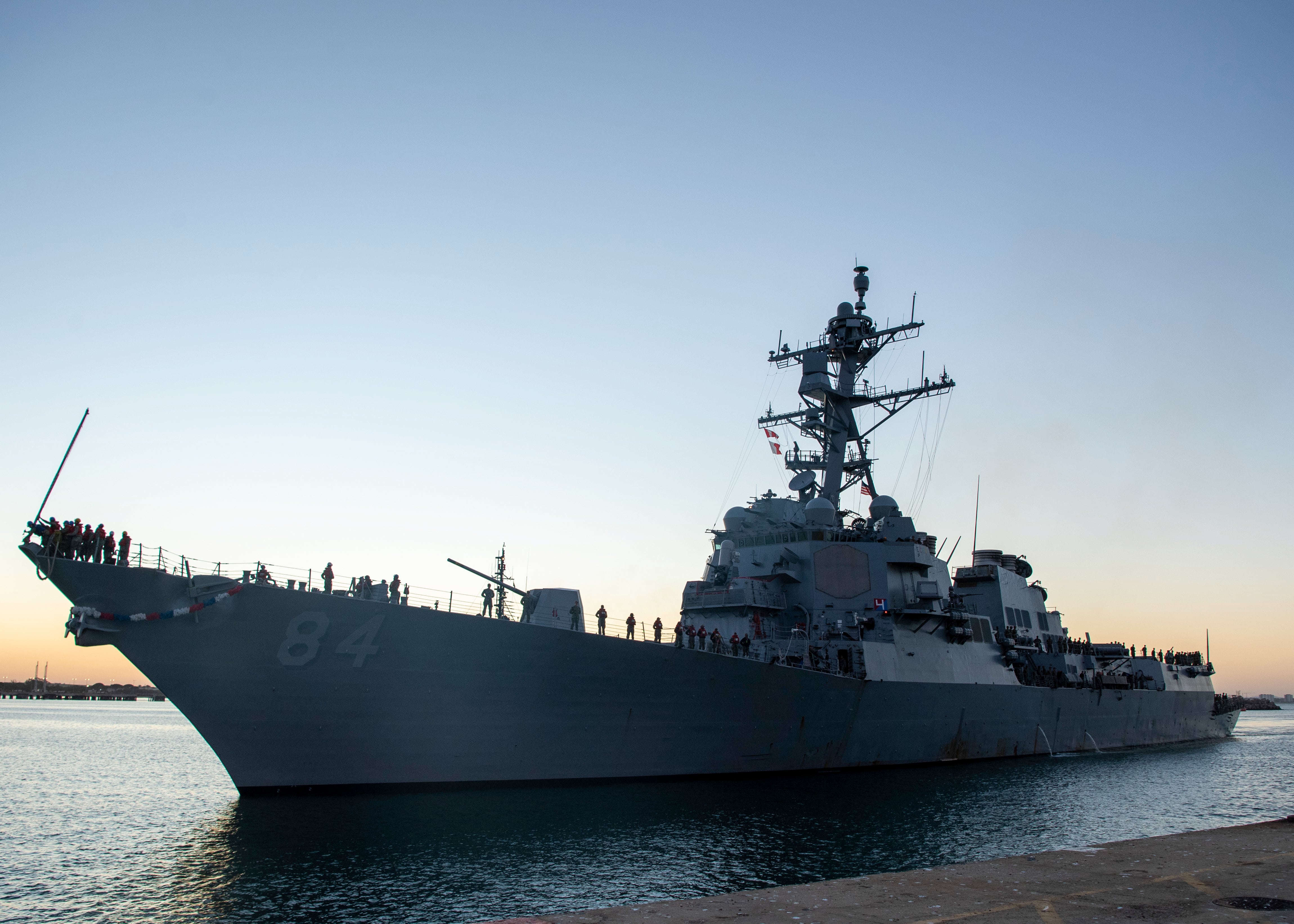
Sailors ogled new arrivals in a group chat, and talked of hooking up with new arrivals, even though they were all married.
“All that means is no commitments,” one of them wrote.
One woman who alleged harassment called it the biggest issue onboard the ship.
“If we aren’t comfortable to come to work, then what are we doing here?” she asked.
Former Command Master Chief Earl Sanders told investigators in May 2022 that the command climate was “good,” but noted that certain “microclimates” were not in sync with the command.
He said he had spoken with the chiefs mess since day one about staying professional.
“Don’t talk about sex and rating women or men or any of that, because in my opinion that translates to the deckplate,” Sanders said, according to the investigation.
Some of the misdeeds uncovered by investigators showcased a lack of professionalism in other regards.
At one point in 2022, a male sailor in the navigation division stuck his genitals into a bag of coffee and then made a pot with the tainted grounds.
An officer came along and unknowingly drank a cup of what he later called the “penis coffee” when speaking with investigators.
Bad things happen when leaders don’t spend time in their ship’s work spaces, according to Raymond Kemp, a retired fleet master chief who served as the senior enlisted leader for U.S. Naval Forces Europe before his retirement in 2019.
“The crew needs to know that I’m either watching or I’m listening at all times,” Kemp told Navy Times. “And there’s no telling when I’m going to walk into that space.”
‘You don’t have rank, suck it up’
Once Bulkeley finally left the yard, and the pressure was on to get the ship certified for operations.
Some sailors told investigators the crew was suffering from having too much to do, and not enough time for sailors to do it.
The crew had been “beaten down” during its so-called “Light Off Assessment,” or LOA, a crucial step to ensure a ship is ready to go after maintenance, according to one crew member.
Before that, during Bulkeley’s more than two years of shipyard maintenance, some in the crew struggled with the lack of purpose that can afflict sailors through such availabilities, the investigations show.
“Hard to see the big picture when you are sweeping up contractors’ messes,” quipped one Bulkeley sailor, who joined the ship in December 2019 and expected it to be “fully operational and doing stuff” by that point.
The consequences of such extended maintenance time came into sharp relief via the aircraft carrier George Washington, where multiple crew suicides in 2022 resulted in high-level probes that revealed the toll for sailors enduring a seemingly unending yard time.
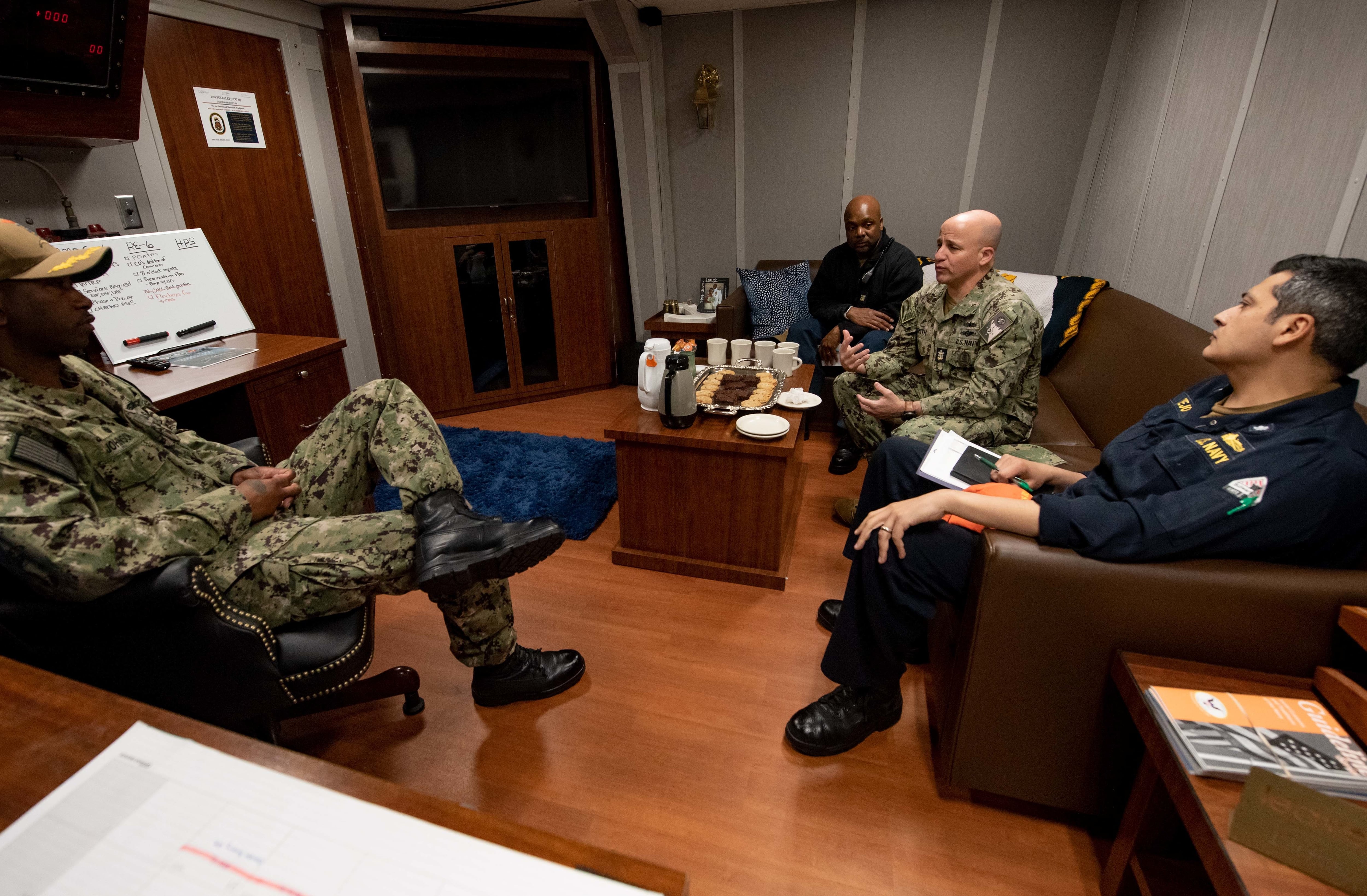
One Bulkeley sailor noted the crew essentially gave up on the ship during maintenance, and that getting everyone back on an operational footing after the yard was a struggle.
Maintaining standards can be hard aboard a ship undergoing maintenance, said Kemp, the retired fleet master chief.
The lights are dimmed or turned off, contractor hoses run everywhere and it can feel like someone else’s ship, he said.
“Cleaning standards cannot be maintained in a shipyard environment, and what happens is that your standards begin to dip, because one of the ways you’re able to display a high level of standards is through cleanliness,” Kemp said.
In such environments, it’s critical that sailors have a firm sense of what they are collectively working toward, both in the yard and when they turn the ship back on when the availability is over, he added.
When Bulkeley left the yard and the move to Spain got delayed, sailor stress was compounded, as some members had already had their housing money cut from their pay, according to the investigations.
“Lot of stress on top of an arduous maintenance schedule,” one officer said. “The crew is just under extreme pressure with schedule, no one knows what happens next, keep getting upgrades that no one knows how to work.”
Other mishaps ensued, a sailor said, and members were placed in front of consoles that didn’t work and would be yelled at for being five minutes late.
One member said sailors felt “pushed along” in the certification processes, even as systems weren’t working.
At least one Bulkeley member told investigators that they went into Surface Warfare Advanced Tactical Training, or SWATT, “thinking they were going to die.”
“SWATT proved to the crew they weren’t worthless,” the investigating officer wrote.
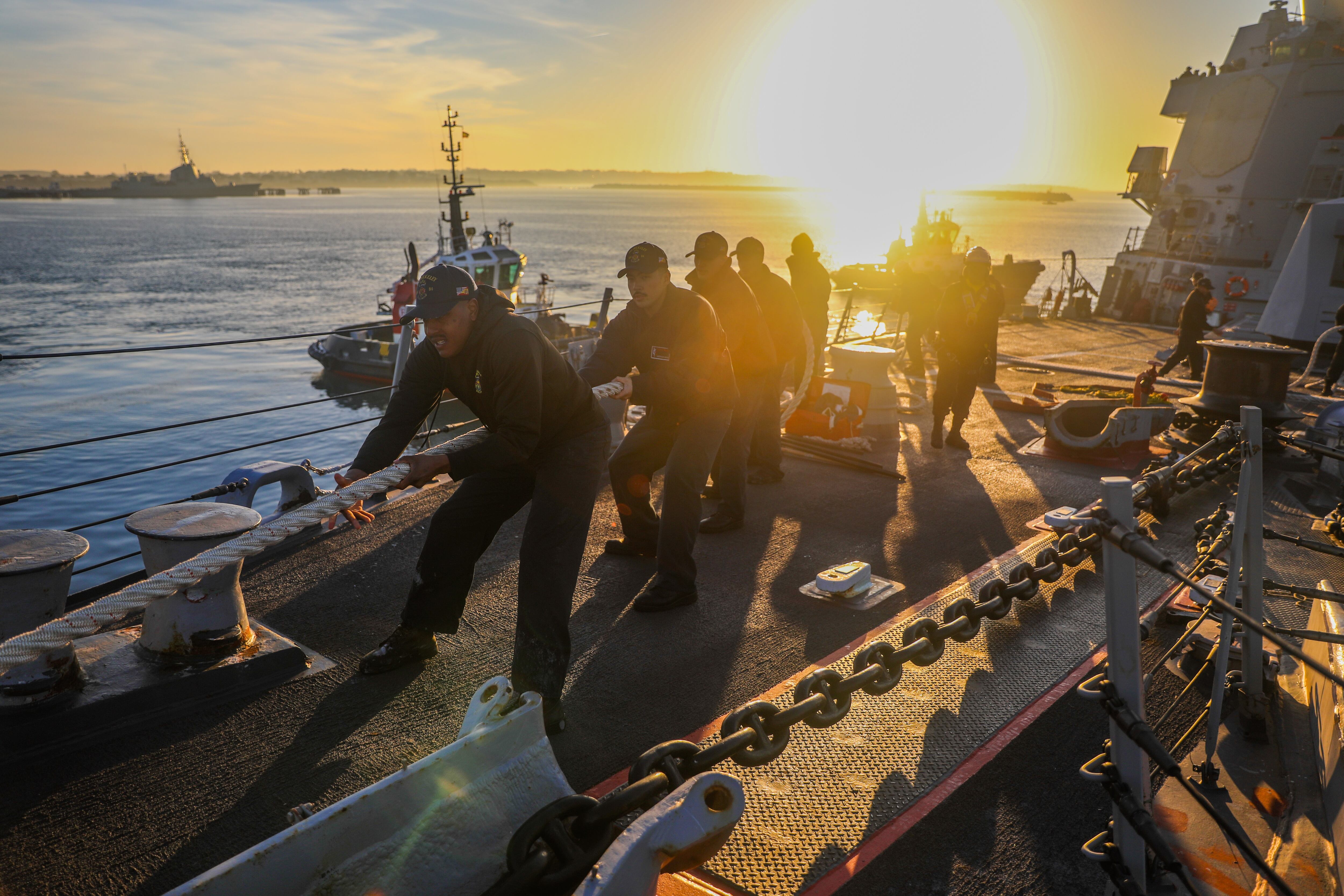
Back in May 2022, one Bulkeley sailor told investigators that “a lot of people are tired,” and others felt as if the wellbeing of the crew had fallen by the wayside as the ship’s command raced to get the destroyer back to sea.
The Navy has rolled out surface fleet guidance for sailor rest in recent years, after crew fatigue was found to have played a role in the 2017 Fitzgerald disaster.
But the investigations suggest fatigue became the plan of the day aboard Bulkeley by early 2022.
“Went on an underway, pulled back into port on a Monday, worked all week, pulled out on a Friday, then pulled back in the following Monday,” one sailor told investigators. “Really rough. Had no sleep, barely sleep even underway. They push us for quals, which is good, but go straight from [one job] to work on quals, then down to [damage control] for those quals, then only have an hour of sleep.”
When it came to the officers, the sailor recalled never seeing people look “so dead.”
“Makes me nervous, how someone can stand [officer of the deck], [junior officer of the deck], master helmsman ... and perform to top level with only a few hours sleep,” they said.
Navy spokesman Carter told Navy Times that sailor readiness and wellness remains “our top priority,” and that the community is “actively addressing challenges” to sailor fatigue through a variety of measures.
One officer called the command climate “really bad.”
“Our schedule keeps changing, adds instability, crew has no idea what is going on or what is happening next,” the officer said.
The officer reported manning shortfalls and how it was “hard to get hull swaps to fill manning gaps,” a shortage of sailors that ships across the surface fleet grapple with.
One sailor noted that “higher ups” are dealing with stress and “take it out on us.”
“Work lists are horrible,” the sailor told investigators. “Underway a lot, don’t get a lot of sleep, under a lot of stress, undermanned, toxic environment. A struggle every day.”
One junior sailor said everyone at the rank of E-6 and above told them to “suck it up.”
“This is the Navy, this is the way it is, you don’t have rank,” the sailor said. “Suck it up.’
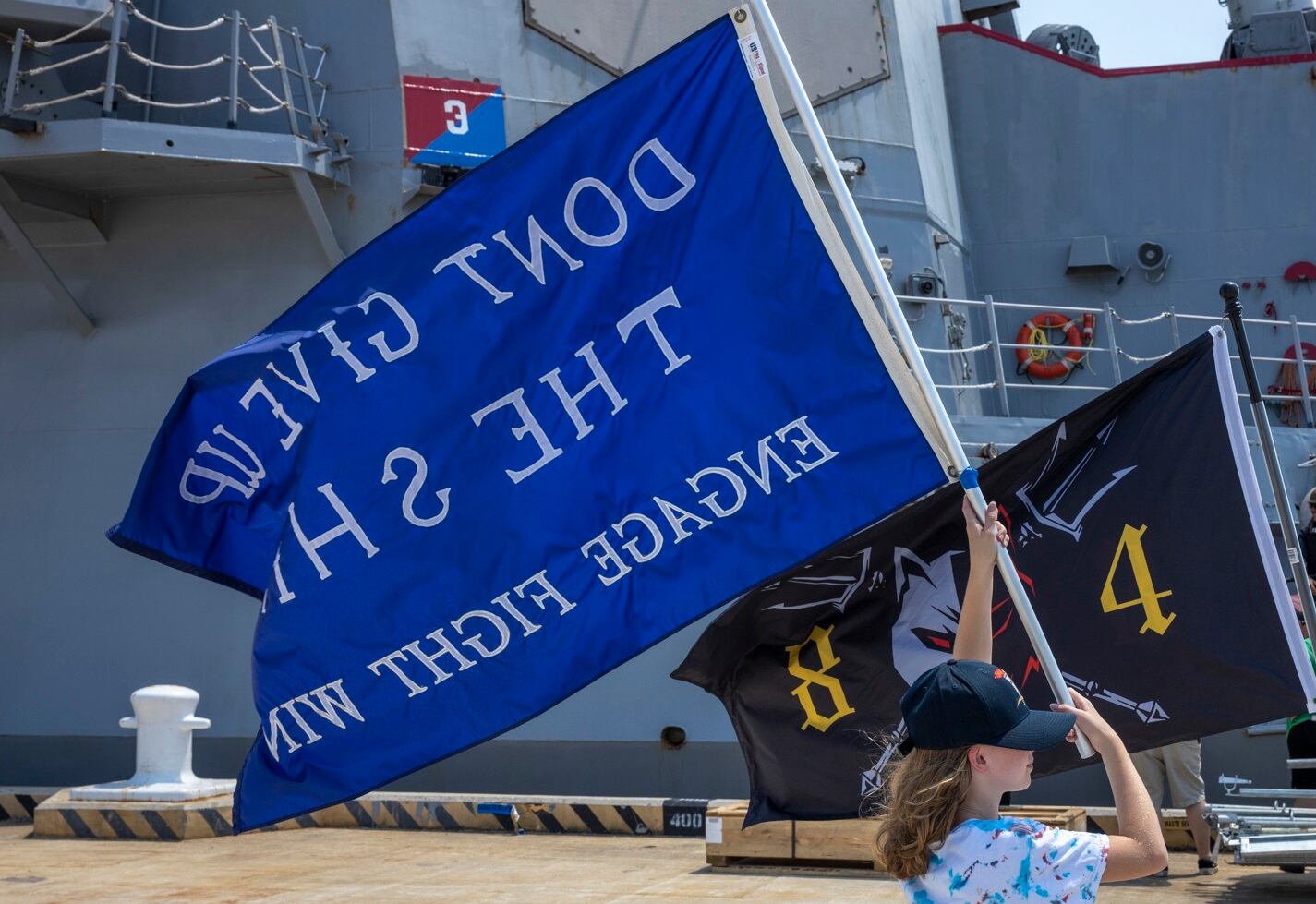
Even Bulkeley’s leadership conceded that things weren’t right.
Johnson, who would be relieved of command shortly after the investigation concluded, noted a lack of trust in his chiefs mess, and the fact that sailors felt “overworked and just generally tired.”
“Think that’s improving, at least the morale piece,” he told the investigating officer.
The ship’s second-in-command at the time, Cmdr. Arturo Trejo, described the ship’s climate as “stressed,” according to the investigation.
Trejo theorized that a lack of trust in the chiefs had to do with fraternization incidents involving the mess.
“Still have sailors that were there, that still remember that,” he said. “Go through a two year yard period, still bitter, have that impression of the chiefs mess, those perceptions still remain despite new people here.”
Geoff is the managing editor of Military Times, but he still loves writing stories. He covered Iraq and Afghanistan extensively and was a reporter at the Chicago Tribune. He welcomes any and all kinds of tips at geoffz@militarytimes.com.
